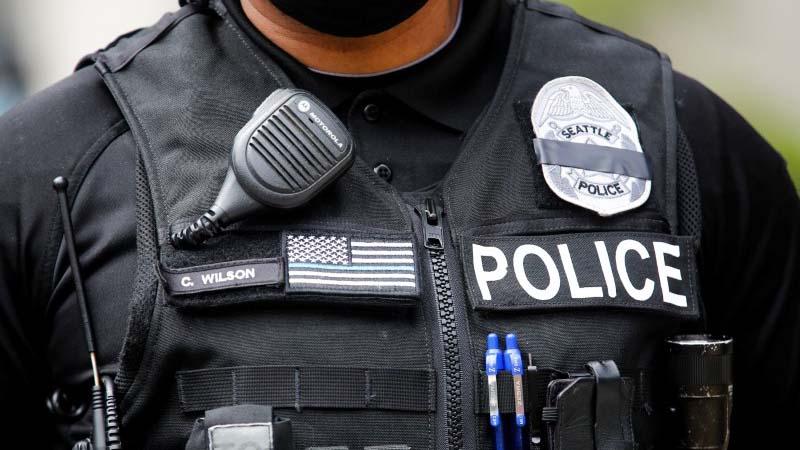In cities across the United States this past week, protesters have been confronted by police carrying shields and batons and hulking armored vehicles that might look to some people like a scene straight out of a war zone.
Widespread protests against racial inequalities and excessive use of force by police following the killing of George Floyd in Minneapolis with a white policeman’s knee on his neck have revived a debate about equipment and tactics used by police around the United States that critics say should be confined to a battlefield. Meanwhile, international human rights advocates observing how the US is handling the protests have said the US may be violating international law in its sometimes violent response.
Agnes Callamard is the United Nations special rapporteur on extrajudicial, summary or arbitrary executions as well as the director of Global Freedom of Expression at Columbia University. She led the definitive investigation into the killing of Washington Post columnist Jamal Khashoggi. Callamard joined The World’s host Marco Werman from outside Avignon, France.
Related: Former CIA analyst sees parallels between Trump protest response and social unrest abroad
Marco Werman: Madame Callamard, civil rights groups are now suing the Trump administration for violating the constitutional rights of demonstrators. You’ve been watching events on the streets of the US this week from France. Are you seeing violations of international law?
Oh, yes, I have. At least on the basis of the videos that I have watched and the reporting that I have read, there appears to be repeated violations of international law — in particular of two principles that should guide the use of force by police in terms of handling protest: necessity and proportionality. I have seen misuse of so-called “less-lethal weapons” from rubber bullets to batons to tear gas. I have seen the use of “less-lethal techniques,” which have become very harmful, if not lethal, in at least the case of Mr. Floyd. So yes, unfortunately, at the moment, based on what we can watch on our screen and what we can read in our newspaper, there is a pattern of violations committed by police force in handling the protest.
Related: Tear gas has been banned in warfare. Why do police still use it?
So you’ve noticed the tear gas and the rubber bullets. How do police assaults on reporters in Minneapolis and Washington, DC, not to mention attacks on demonstrators — how do those compare with what we see in other countries?
Look, the one thing I should say is that unfortunately, the US does not stand out when it comes to those forms of violations. The scale of those violations is unusual, but the nature of the violation is not. So throughout 2019, I have received countless allegations of similar misuse of tear gas or rubber bullets in other contexts, including in Europe, in Chile, in the Middle East. So from that standpoint, unfortunately, there is a global phenomenon of police misusing so-called less-lethal weapons in ways that are either making them lethal or making their use so indiscriminatory that it amounts to a violation.
So what or who are the authorities internationally and what are they thinking about how to respond to what’s happening in the US?
First of all, in the US and globally, I will say there is an increasing awareness within the international community, the human rights community, and also the police community, that the so-called less-lethal weapons are no panacea. There is a reasonable factor as to why we need them, because they give police a range of options in terms of handling difficult situations. And that is something that is welcomed.
We certainly do not want the police to have only recourse to a firearm when confronted with a difficult situation. So the range of options that those less-lethal weapons constitute is welcome. But in order to meet their purposes, which is to police in an effective and safe fashion, they have to be used to properly. And what we are seeing is the repeated misuse, the absence of proper guidelines and regulations, legal frameworks which are enshrining excessive use of force and impunity. That is particularly the case in the US because of the qualified immunity doctrine which is applied to police officers. This is why I and others have called for an end of the doctrine. That will be of first essential step towards addressing the systemic impunity that is attached to excessive use of force. The second is proper regulations regarding those the less-lethal weapons. And the third is proper training attached to those less-lethal weapons.
This interview has been edited and condensed for clarity. Reuters contributed to this report.
